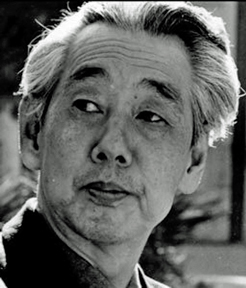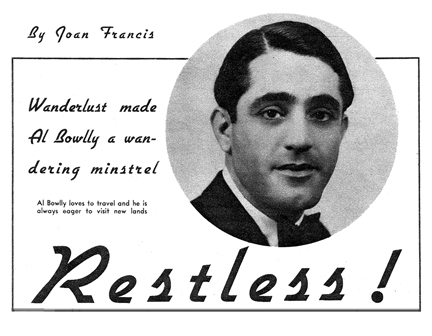Here are 10 things you should know about Olivia de Havilland, who passed away in her sleep on July 25, 2020, at the age of 104.
Tag: Japan
10 Things You Should Know About Kyôko Kagawa
Here are 10 things you should know about the wonderful Kyôko Kagawa, who celebrates her 88th birthday today. She’s enjoyed a career that’s spanned 70 years to date, and she’s still going strong.
Naruse in the Wee Hours
 We are devotees of classic Japanese cinema, from the 1920s into the ‘60s. There are many great directors of that era, a number of whom are familiar names here in the US: Kurosawa, Ozu, Mizoguchi. But our personal favorite (it’s a close race with Kurosawa) is Mikio Naruse, whose directing career spanned nearly 40 years, from the silent era into the late 1960s.
We are devotees of classic Japanese cinema, from the 1920s into the ‘60s. There are many great directors of that era, a number of whom are familiar names here in the US: Kurosawa, Ozu, Mizoguchi. But our personal favorite (it’s a close race with Kurosawa) is Mikio Naruse, whose directing career spanned nearly 40 years, from the silent era into the late 1960s.
Naruse made quiet, leisurely paced movies, pictures about (mostly) middle- and lower-class families and especially the women who keep those families afloat in the face of challenges and obstacles.
In 2005, NYC’s Film Forum ran a month-long Naruse retrospective that included some 35+ films. We had never seen one of his movies before, but we were interested in learning about him, so we made it a point to see the first film in the retrospective, followed quickly by the second, the third and most of the rest. (Over the course of that month, we missed just one movie, a film that was shown just once, at a time when I had to be at work.)
And at the end of that month-long retrospective, we were commiserating with a Film Forum employee who’d seen most of the movies, too, and we wondered together: How often could one see more than thirty films by a single director over a span of just four weeks and be sorry to see the retrospective end? How many directors’ work could stand up to that sort of total immersion and leave one wanting more?
Not many, we figure. So it’s with no hesitation at all that we recommend to you the two Naruse films that Turner Classic Movies is airing late tonight. Ginza Cosmetics (1951), which airs at 2:45 am ET, is the story of a young mother who is struggling to raise her young son while working as a geisha, and Wife (1955), which follows at 4:15 am, is about a couple that is struggling after ten years of marriage. The wife feels her husband isn’t a good provider and the husband is tempted by the prospect of a fresh start with an ex-colleague, a widow with a small child.
Set those DVRs, friends.
Snapshot in Prose: Al Bowlly
In this week’s Snapshot in Prose, we convene with Ray Noble‘s favorite vocalist (and one of ours, too), Mr. Al Bowlly. We learn that Bowlly had a fledgling career as a barber before he became a professional singer and that he grew up not in England, as we’d always thought, but in Johannesburg, South Africa. Join us for this 1935 tête-à-tête with Mr. Bowlly.

“They’re the only kind of songs I like to sing,” said the popular Al when we cornered him in Radio City’s luxurious Rainbow Room. “Of course, I often have to sing other types but I can’t put my heart into anything without a touch of romance.”
Albert Bowlly, who is currently appearing with Ray Noble at New York’s swanky Rainbow Room, 65 stories above the clatter and clamor of Manhattan, and can be heard over a coast-to-coast hook-up several times a week, was born on a farm near Johannesburg, South Africa, about thirty years ago.
